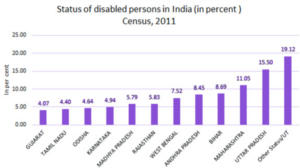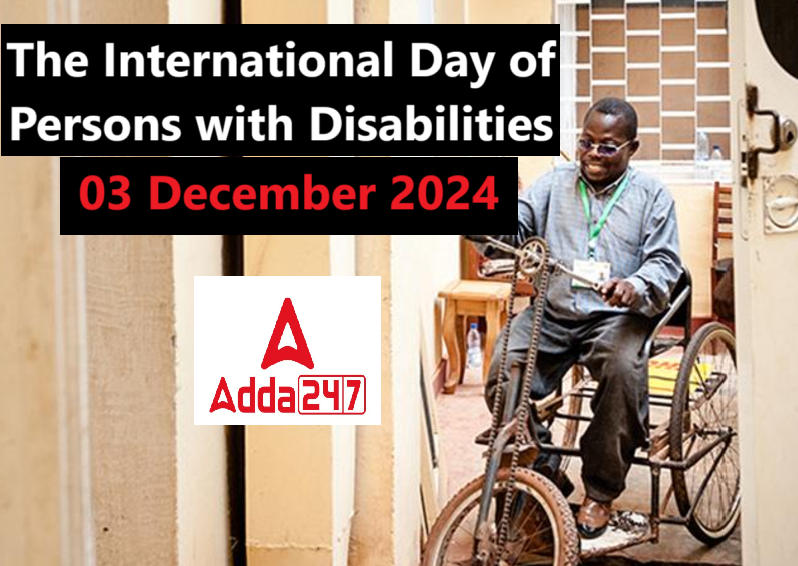Table of Contents
The International Day of Persons with Disabilities (IDPD) is celebrated every year on 3rd December to highlight the achievements and challenges of persons with disabilities. The Main Goals are Promoting leadership of persons with disabilities in all aspects of life, ensuring their inclusion in society, and increasing their participation in decision-making processes. Raising awareness about their rights and celebrating their achievements.
The theme of International Day of Persons with Disabilities 2024
This year’s theme, “Amplifying the leadership of persons with disabilities for an inclusive and sustainable future,” focuses on empowering people with disabilities to lead and contribute to society. The theme highlights that people with disabilities should actively shape their lives, inspired by the slogan “Nothing About Us Without Us.”
Overview of International Day of Persons with Disabilities 2024
International Day of Persons with Disabilities is celebrated worldwide on December 3rd to raise awareness about the challenges faced by people with disabilities and promote equal rights and opportunities for all.
| International Day of Persons with Disabilities 2024 Overview |
|
History of International Day of Persons with Disabilities
The International Day of Disabled Persons has been observed annually since 1992, following the United Nations General Assembly resolution 47/3. The day aims to promote the rights and well-being of persons with disabilities in all areas of society and raise awareness about their challenges in political, social, economic, and cultural life. The adoption of the Convention on the Rights of Persons with Disabilities (CRPD) in 2006 further supported disability rights and well-being, contributing to global development frameworks like the 2030 Agenda for Sustainable Development.
Disability refers to conditions that limit a person’s ability to function, such as physical, sensory, cognitive, or mental health issues. People with disabilities often face poorer health, lower education, fewer job opportunities, and higher poverty due to limited access to services and societal barriers. They are also at a higher risk of violence. Children with disabilities are almost four times more likely to experience violence, and adults with disabilities, especially those with mental health conditions, are more vulnerable. Stigma, discrimination, and lack of support increase this risk.
Disability in India
The Department of Empowerment of Persons with Disabilities, under the Ministry of Social Justice & Empowerment, works to empower individuals with disabilities. According to the 2011 Census, there are 2.68 crore people with disabilities in India, making up 2.21% of the population. The RPwD Act, 2016 recognizes 21 types of disabilities, including locomotor disability, visual and hearing impairments, speech and language disabilities, intellectual disability, cerebral palsy, and dwarfism, among others.
| Persons with Disabilities in India (PwD) | |||
| Type of Disability | Persons (in Millions) | Males (in Millions) | Females (in Millions) |
| Total | 26.8 | 15.0 | 11.8 |
| In Seeing | 5.0 | 2.6 | 2.4 |
| In Hearing | 5.1 | 2.7 | 2.4 |
| In Speech | 2.0 | 1.1 | 0.9 |
| In Movement | 5.4 | 3.4 | 2.1 |
| Mental Retardation | 1.5 | 0.9 | 0.6 |
| Mental Illness | 0.7 | 0.4 | 0.3 |
| Any Other | 4.9 | 2.7 | 2.2 |
| Multiple Disability | 2.1 | 1.2 | 1.0 |

Legal Rights of Disabled Persons in India
The Indian government passed the Rights of Persons with Disabilities (RPwD) Act, 2016, to empower people with disabilities and create a more inclusive society. This law recognizes 21 types of disabilities, including locomotor disability, visual/hearing impairments, and intellectual disability.
The main provisions of the RPwD Act include:
- Benchmark Disabilities: People with at least 40% disability in any category are considered persons with benchmark disabilities.
- Accessibility: Public buildings must be accessible to persons with disabilities within a set timeframe.
- Education: Children with disabilities between 6-18 years have the right to free education, with 5% reservation in higher education.
- Employment: 4% reservation in government jobs for persons with benchmark disabilities.
- Commissions: National and State Disability Commissions protect the rights of persons with disabilities.
- Funds: National and State Funds are created to financially support persons with disabilities.
- Penalties: Violations can lead to fines or imprisonment.
The RPwD Act aligns with the United Nations Convention on the Rights of Persons with Disabilities (UNCRPD).
Government Schemes for Disabled Persons in India
The Government of India offers various schemes to support people with disabilities:
- NIRAMAYA: Affordable health insurance for autism, cerebral palsy, mental retardation, and multiple disabilities.
- SAHYOGI: Caregiver training scheme to assist families of people with disabilities.
- GYAN PRABHA: Educational support for those with autism, cerebral palsy, mental retardation, and multiple disabilities.
- Indira Gandhi National Disability Pension Scheme: Monthly pension for disabled people aged 18 or older with a disability of 80% or more, belonging to the poverty line.
- ADIP Scheme: Provides aids and appliances for people with disabilities.
- DDRS Scheme: Promotes voluntary action for people with disabilities.
- Marriage Incentive Award: ₹30000 allowance for eligible individuals.
- Divyangjan Swavalamban Yojana: Concessional loans for economic empowerment.
United Nations Disability Inclusion Strategy
The United Nations Disability Inclusion Strategy, launched in June 2019, aims to improve disability inclusion in all areas of the UN’s work, both at headquarters and in the field. It emphasizes that the human rights of people with disabilities are an important part of all human rights. In 2024, the Secretary-General submitted his fifth report on disability inclusion, detailing progress, challenges, and future priorities for creating an inclusive and accessible world for all.
Commemorative Event: 3 December 2024
The UN will hold a commemorative event at its headquarters in New York to mark International Day of Persons with Disabilities (IDPD). The event will include an in-person opening and a virtual panel.
10:00-11:00 AM (In-person): Opening segment covering the global disability agenda, achievements from key UN sessions, and upcoming milestones like the Second World Summit for Social Development in 2025.
11:30 AM-1:15 PM (Online): Panel discussion with experts and advocates focusing on disability-inclusive peace and development, including the impact of UN Security Council Resolution 2475 and the climate crisis on people with disabilities.



 TSPSC Group 1 Question Paper 2024, Downl...
TSPSC Group 1 Question Paper 2024, Downl...
 TSPSC Group 1 Answer key 2024 Out, Downl...
TSPSC Group 1 Answer key 2024 Out, Downl...
 UPSC Prelims 2024 Question Paper, Downlo...
UPSC Prelims 2024 Question Paper, Downlo...




